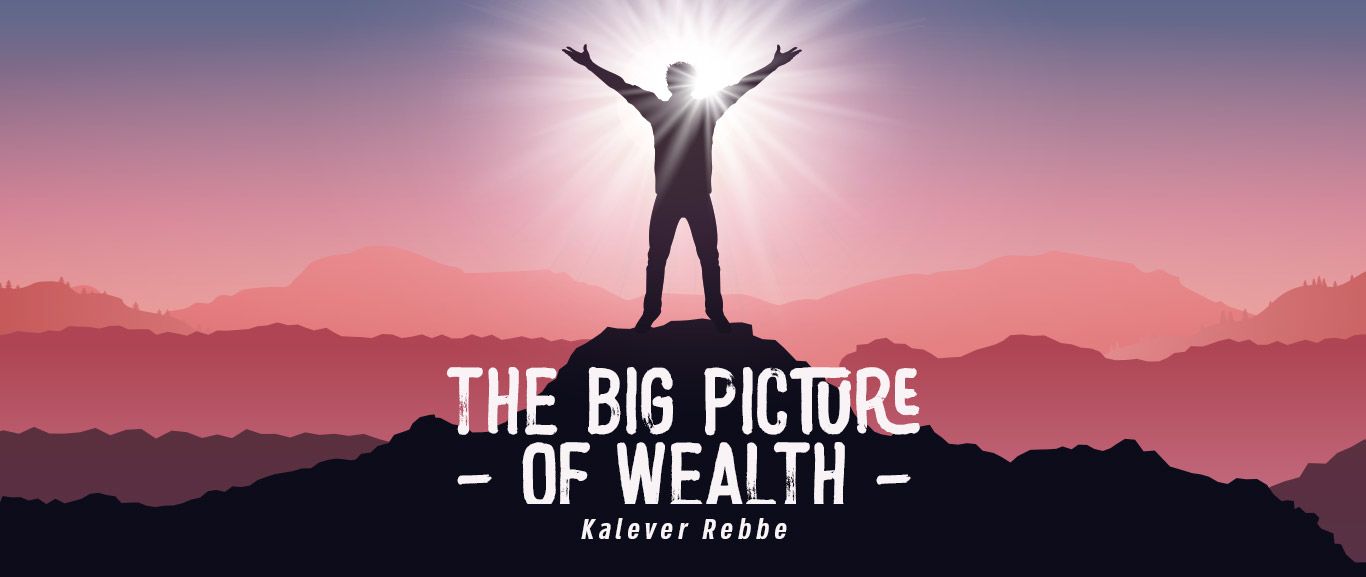
The Big Picture of Wealth
Contrary to popular social movements, the Torah forbids taking wealth from someone to give to the poor. Such "Robbin Hood" thinking denies Hashem's direct providence.

“You shall not steal from an employee who is poor or destitute”. (Devarim 24:14)
Who Is in Charge?
The students of the Maggid of Mezeritch, zt”l, were once discussing how they would run the world if they were in Hashem’s place.
One student said that he would provide everyone in the world with riches, so that they could study Torah and perform mitzvot free of all distractions. Another student disagreed and said that he would make everyone in the world poor, because wealth and affluence only distract a person from his true purpose.
The Baal HaTanya, zt”l, who was sitting among the students, answered: “Since it is impossible to oversee this world better than Hashem, I would do everything exactly the same. Everything Hashem does is for the best. And, if we don’t see that goodness in something, that is our shortcoming.”
The Big Picture
The Chafetz Chaim, zt”l, provided a powerful analogy:
A man was traveling and spent Shabbat in a particular town. When he went to shul (synagogue), he noticed that the gabbai was calling up people for the Aliyot from different areas in the shul. He called up the Kohen and Levi from the south, the third Aliyah from the east, the fourth from the west, and the fifth and sixth aliyot from the north.
The visitor was puzzled and asked out loud: “Why does he call up these men from the south? Aren’t there respectable men in the east side of the congregation? And, why does he pick the third Aliyah from the east and not the south? Why does he choose people based on where they are sitting?”
A congregant overheard these questions and answered: “With all due respect, this is your first Shabbat here and you want to know why the Alyiot are chosen in a particular order? If you were here for a few weeks, you would see that the gabbai uses this system to track who already had an Aliyah in previous weeks and invite others to have the opportunity.”
A person lives in this world for a brief window of time and he expects to understand how the world works? He wants answers to all his questions? He wants to know why one person is wealthy while another person is poor. Or he wants to understand why a poor person can do so much good in the world while a wealthy person does not.
If this person lived for hundreds of years, he would see that each person has exactly what they need to help them achieve their purpose for being here. There are souls placed in the bodies of the wealthy to experience that test. Then, those very same souls will revisit this world in the bodies of the poor to face that challenge as well.
Everything, everyone, and every event that occurs in this world is with exactness, a Divine calculation from the Heavens. Nothing is haphazard. Every detail is an element in a far larger plan in helping each soul obtain a tikkun, a level of rectification and perfection that can only be achieved through these trials, challenges, and experiences.
If a person lived for thousands of years, he would start to gain perspective, to see the full scope of the Divine plan. However, for the brief time he is in this world, he is like a guest passing from place to place, unaware of why things happen in a particular way. He doesn’t have the ability to question the way Hashem implements these Divine calculations. Rather, he needs to walk with Him purely, with emuna (faith) that everything Hashem does in this world is for the ultimate good of all.
The Dangers of “Isms”
The founders of Communism and Socialism were heretics. They denied Hashem’s Hashgachah Pratit (Divine Providence). These philosophies didn’t view the world as the outcome of a precise Divine plan. Therefore, they felt that it was unjust for some people to be wealthy while others were in need. Their heresy drove them to cling to a false view of equality, and they would forcefully take the possessions from the wealthy and redistribute it among the population.
These philosophies are rooted in the culture of Sodom. They also denied Hashgachah Pratit. The Gemara in Sanhedrin (109a) taught that when the people of Sodom discovered that someone was wealthy, they would deploy different tactics to try and find the treasure, take it, and divide it amongst themselves.
Lot, the nephew of Avraham Avinu, also believed in this philosophy. Therefore, he would graze his animals in the fields of the wealthy without their permission; taking what he felt was rightfully his from those who had more. When Avraham Avinu realized that Lot was following this viewpoint – which inevitably denies Hashem’s Hashgachah Pratit – he asked Lot to separate himself from Avraham. Lot went to live in Sodom where the entire culture was built upon this distorted perspective.
The core of these distorted philosophies, these schools of thought that deny Hashem’s oversight of this world, can still be found today. In nearly every country, there are segments of the population – and not necessarily small segments – who, under the guise of false equality and justice, seek to forcefully take from the wealthy and redistribute that wealth free of punishment.
The Torah’s View
However, the Torah’s perspective on wealth and wealth distribution is vastly different. Everything a person has is provided by Hashem. Therefore, your possessions and your wealth are rightfully yours just like the possessions of the poor are rightfully his.
Of course, a person should contribute a portion of his wealth willingly to fulfill the mitzvah of tzedakah. However, that is his choice, and he cannot be forced to do so. And, taking it without his permission is stealing just as it would be stealing to take the possessions of a poor person.
Hashem provides two very clear warnings in His Torah not to forcefully take from the wealthy to give to the poor. The first time is in Parshat Mishpatim where it says, “Neither shall you glorify a poor man in his lawsuit” (Shemot 23:3). Rashi explains: You shall not bestow honor upon him [the destitute man] by deciding in his favor in his lawsuit, saying, “He is a poor man; I will decide in his favor and honor him.”
The second time is in Parshat Kedoshim where it says, “You shall not favor a poor person” (Vayikra 19:15). Rashi explains: [This means] that you shall not say, “This man is poor, and the rich man is obligated to provide him with sustenance; therefore, I will acquit him in judgment, and he will thus be sustained respectably.”
This is the meaning of our posuk. It says: “You shall not steal” even if you are “an employee who is poor or destitute”. Do not subscribe to the heretical philosophy and belief that a poor person can forcefully take from those who seem to have more than him, because it’s an injustice to have more than others. You cannot steal from your employer whom you might think isn’t compensating you enough. You need to remember that everything is from Hashem who watches over this world with Hashgachah Pratit, an exacting Divine Providence and intervention.
***
The Kalever Rebbe is the seventh Rebbe of the Kaalov Chasidic dynasty, begun by his ancestor who was born to his previously childless parents after receiving a blessing from the Baal Shem Tov zy”a, and later learned under the Maggid of Mezeritch zt”l. The Rebbe has been involved in outreach for more than 30 years, and writes weekly emails on understanding current issues through the Torah. You can sign up at www.kaalov.org.


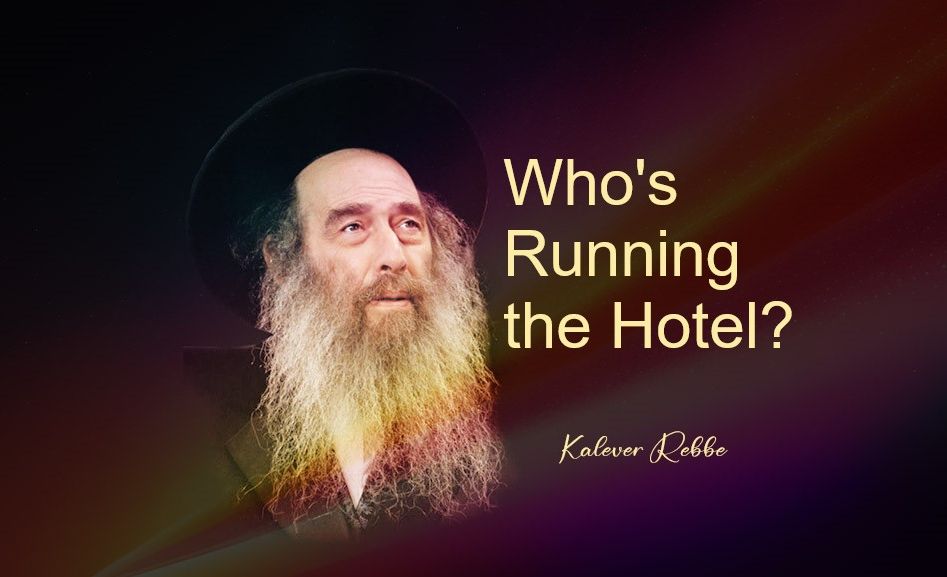
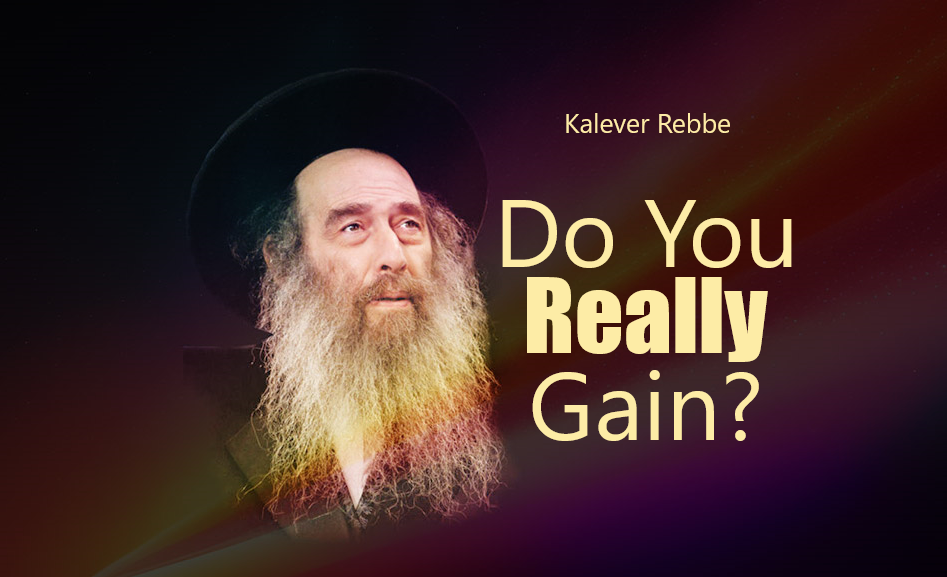
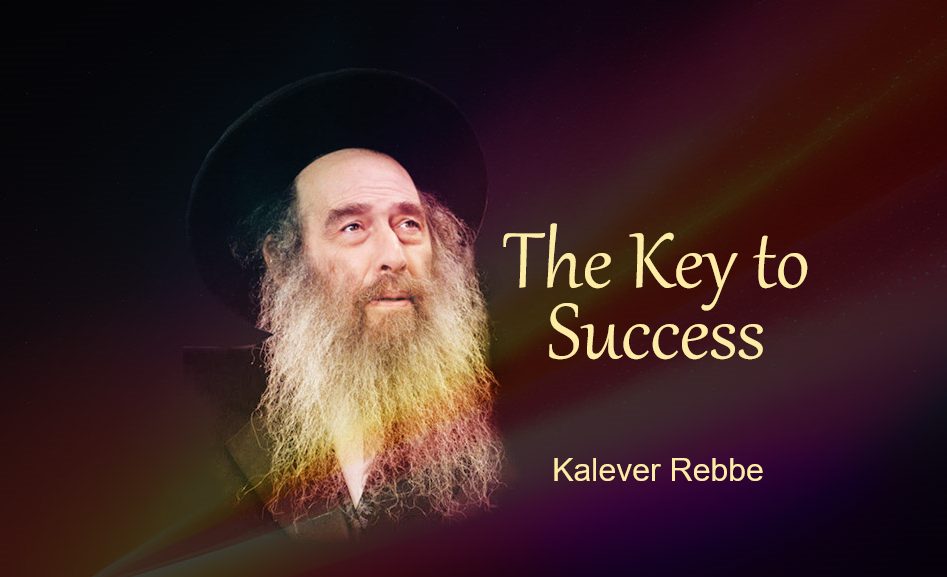
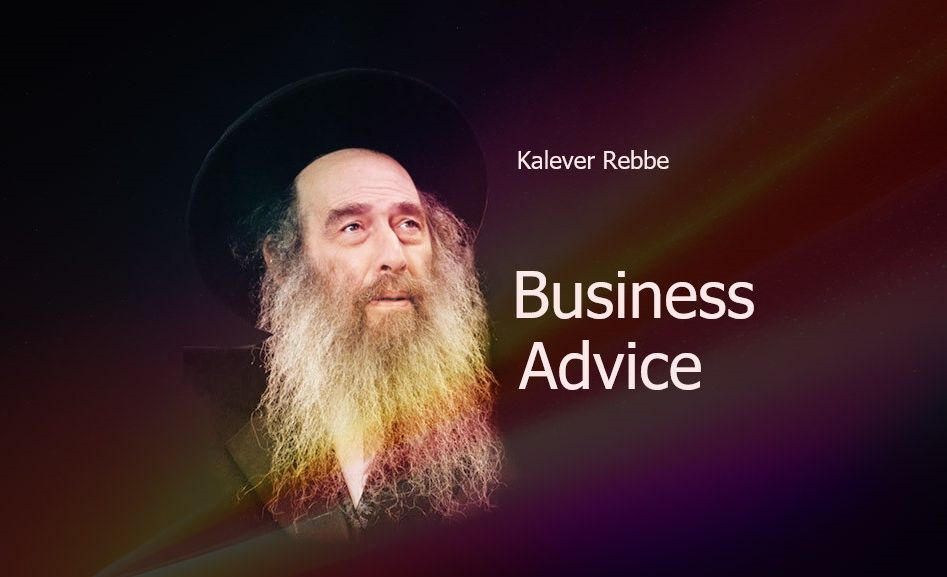

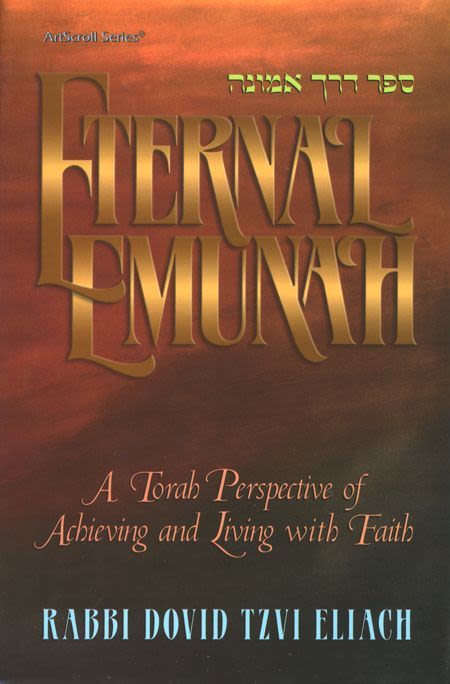

10/06/2022
Thank you!
10/03/2022
Hi,
In the signature of the article is the website for the Kalever Rebbe. On his website there is a Contact Us page at https://www.kaalov.org/contact. I’d try there.
Hope that this helps and thank you for your comment!
10/02/2022
May I have a way to send my comments to the kalever Rebbe? I have looked very much into this issue, and although I agree with some of it, there are many points which I don’t agree with. True, we may not steal from the rich, but the Torah’s view is that tsdaka is tsedek, meaning justice, because it is truly unjust for some to have great wealth while others are desperately poor, and Hashem wants us to right this injustice by giving lots of tsdakah.